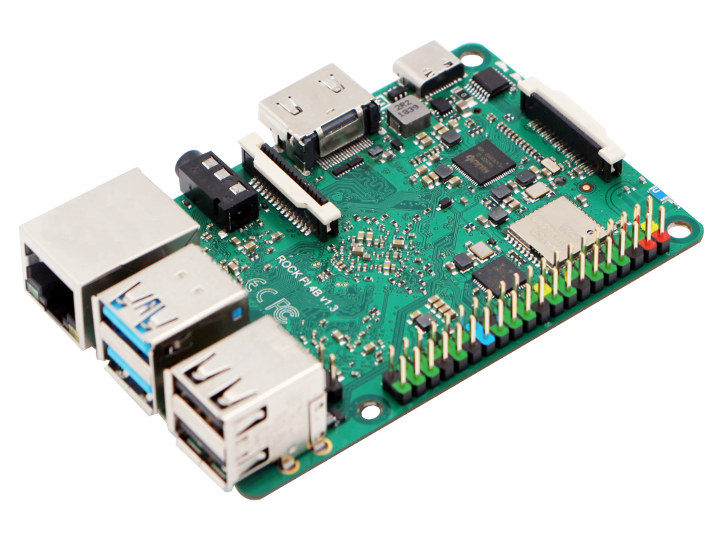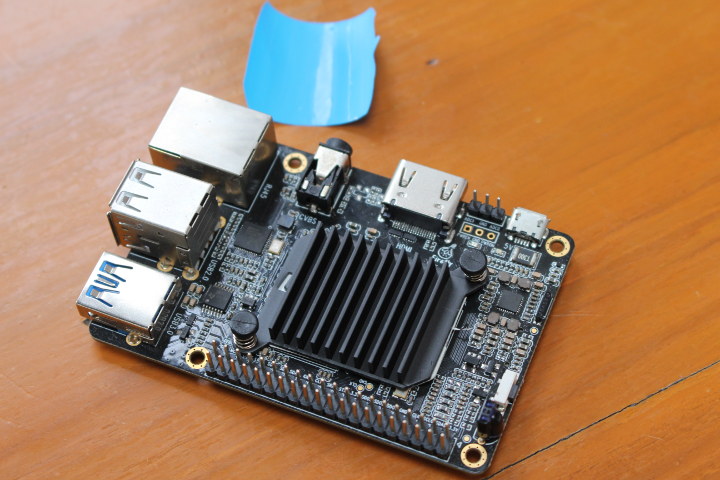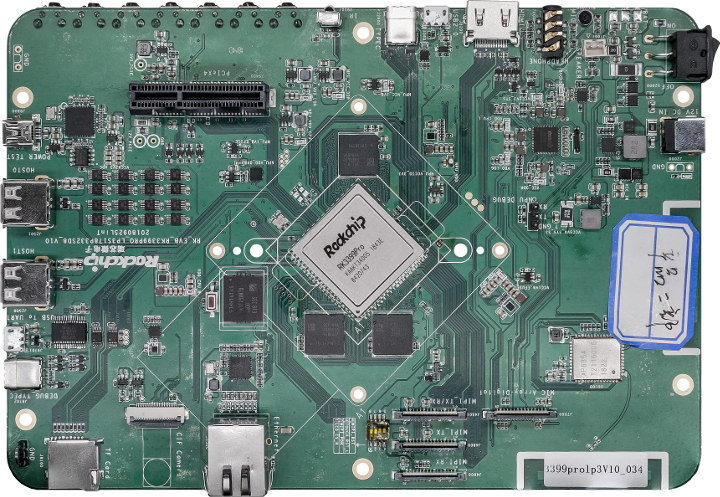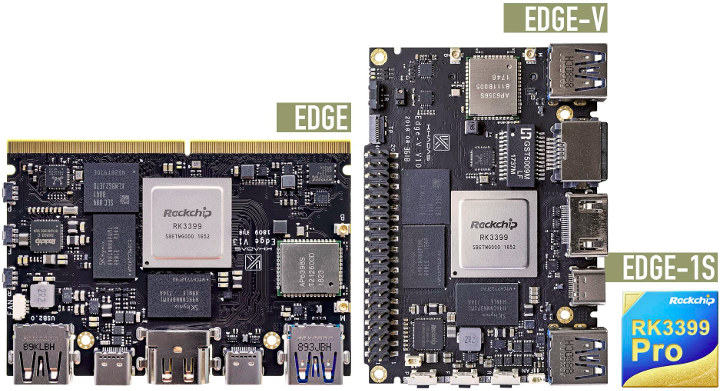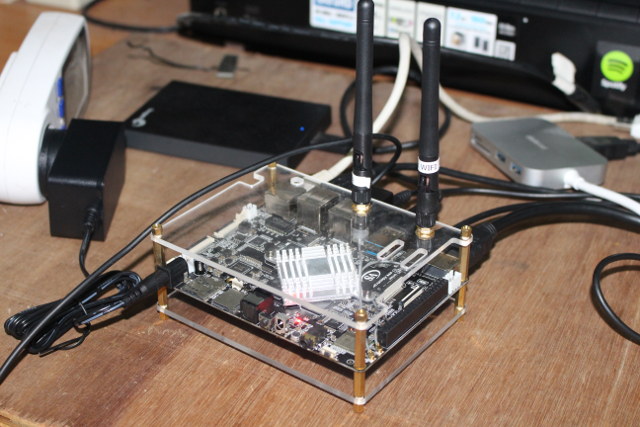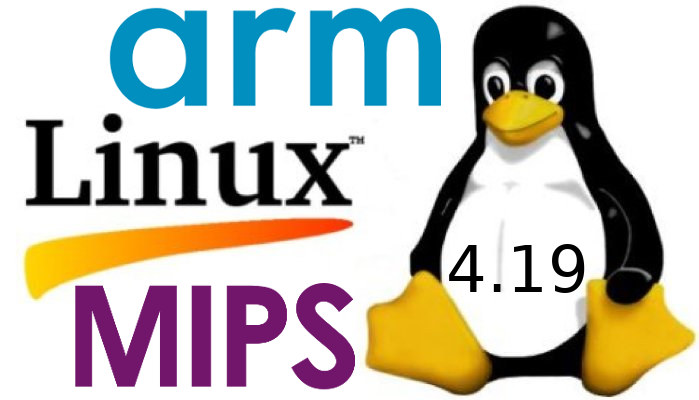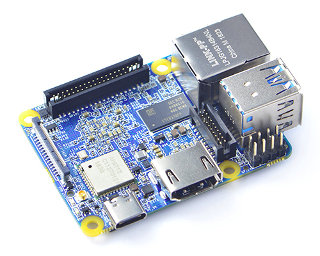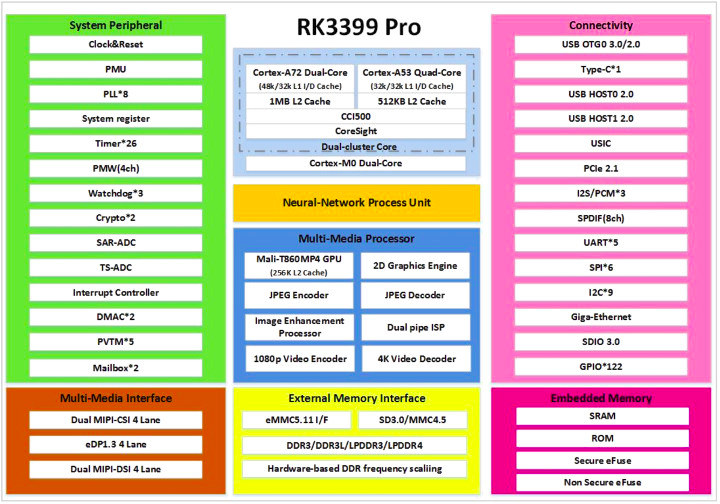The long awaited RPi 4 is almost finally here! Except we’re not talking about Raspberry Pi 4, but Rock Pi 4 designed by Radxa team, back after three years following the launch of Radxa Rock 2 Square, with the new SBC just unveiled by Tom Cubie, Radxa founder. Rock Pi 4 single board computer is powered by a Rockchip RK3399 hexa-core processor coupled with 1 to 4GB RAM, and following Raspberry Pi 3 and ASUS Tinker board form factor. There will be two variants with Rock Pi 4 Model A and Model B sharing most of the same specifications: SoC – Rockchip RK3399 big.LITTLE hexa-core processor with 2x Arm Cortex-A72 @ up to 1.8 GHz, 4x Cortex-A53 @ up to 1.4 GHz, a Mali-T864 GPU with support OpenGL ES1.1/2.0/3.0/3.1, OpenVG1.1, OpenCL, DX11, and AFBC, and a VPU with 4K VP9 and 4K 10-bit H265/H264 decoding System Memory – 1, 2 […]
Giveaway Week – Libre Computer ROC-RK3328-CC Board
What will be the prize on the fourth day of this year’s giveaway week? Libre Computer ROC-RK3328-CC, a development board based on Rockchip RK3328 processor and mostly following Raspberry Pi 3 form factor. When I reviewed the board with Debian 9 last summer, I was mostly reminded how important fast storage and proper power supply were important. I had some kernel panic when using slow storage (micro SD card), but when I switch to the eMMC flash stability improved a lot. I also had some troubles with my USB 3.0 hard drive, but switching from a 5V/2A power supply to a 5V/2.5A power adapter solved most of my problems. Once I had “solved” those two issues the board worked fairly well, and Libre Computer always aims for mainline Linux support on their board, so that’s an advantage to take into consideration. The kit offered includes the board and heatsink, so […]
Rockchip RK3399Pro EVB and NPU Performance Demos (Video)
Rockchip RK3399Pro was announced as an updated version of RK3399 processor with an NPU (Neural Processing Unit) capable of delivering 2.4 TOPS for faster A.I. workloads such as face or object recognition. There haf been some delays in the past because of a redesign of the processor that placed the NPU’s RAM on the PCB instead of on-chip for cost reasons. Eventually we got more details about RK3399Pro, and today I also received a 15-page presentation with some more information about the software, and processor itself. But even more interesting, that’s the first time I see Rockchip’s official RK3399Pro EVB (Evaluation Board), and the guys at Khadas uploaded a video to explain a bit more about the board, and showcase the NPU performance measured up to 3.0 TOPS with an object recognition demo, and an “body feature” detection demo – for the lack of a better word – running in […]
Khadas Edge RK3399/RK3399Pro Board Crowdfunding Campaign Launched
Khadas Edge is another upcoming Rockchip RK3399 board that we initially covered this summer, and comes with a particular design in the sense it is both a single board computer with USB and Ethernet port, and a system-on-module through its edge connector. Later on we found out, the company was working on a variant called Khadas Edge-V with the edge connector being replaced by a more standard 40-pin header, as well as Khadas Edge1S powered by Rockchip RK3399Pro for AI applications. The company has now launched the three boards and accessories through an Indiegogo crowdfunding campaign. I’ve already covered the two RK3399 boards in previous post, and the RK3399Pro based Khadas Edge-1S (2GB RAM, 2x MIPI-CSI, …) will be similar to Edge board but with , so instead I’ll have a closer look at the specifications for Khadas Captain carrier board for Khadas Edge / Edge-1S: Edge connector – 314-pin […]
Giveaway Week – Videostrong VS-RD-RK3399 Development Board
That’s the time of the year for another Giveway Week on CNX Software. They will be some development boards, add-on boards, and one gadget. You’ll have to keep reading this blog everyday to find out, but I’ll start with VideoStrong VS-RD-RK3399 development board and accessories. Also know as Mecool VS-RK3399, it is one of the many Rockchip RK3399 development board on the market. The board I have comes with 4GB LPDDR3, and 32GB eMMC flash, as well as all accessories above, minus the USB type-C cable which I can’t find anymore… A 12V/2A will also be provided in the kit given away. I reviewed the board with Debian, tested the SDK, and ran a few benchmarks in Linux about a year ago, and I found that while the board mostly worked as expected, software support and documentation needed some improvements. The SDK page is still there,but they have not really […]
Linux 4.19 Release – Main Changes, Arm and MIPS Architectures
With Linus Torvalds taking a leave from the Linux kernel project, Greg Kroah-Hartman was the one to release Linux 4.19 last Sunday: Hi everyone! It’s been a long strange journey for this kernel release… While it was not the largest kernel release every by number of commits, it was larger than the last 3 releases, which is a non-trivial thing to do. After the original -rc1 bumps, things settled down on the code side and it looks like stuff came nicely together to make a solid kernel for everyone to use for a while. And given that this is going to be one of the “Long Term” kernels I end up maintaining for a few years, that’s good news for everyone. A small trickle of good bugfixes came in this week, showing that waiting an extra week was a wise choice. However odds are that linux-next is just bursting so […]
NanoPi NEO4 is the Cheapest & Smallest RK3399 Board So Far
As you should be well aware the RK3399 SBC market is quite crowded these days, and FriendlyELEC had already released two Rockchip RK3399 boards with NanoPC-T4, and NanoPi M4 boards. But the company has now announced another board – as expected – with NanoPi NEO4, the smallest and cheapest RK3399 board on the market at this point. NanoPi NEO4 board specifications: SoC – Rockchip RK3399 big.LITTLE hexa-core processor with 2x Arm Cortex-A72 @ up to 2.0GHz, 4x Cortex-A53 @ up to 1.5GHz, a Mali-T864 GPU with support OpenGL ES1.1/2.0/3.0/3.1, OpenVG1.1, OpenCL, DX11, and AFBC, and a VPU with 4K VP9 and 4K 10-bit H265/H264 decoding System Memory – 1GB DDR3-1866 Storage – eMMC module socket, micro SD card slot Video & Audio Output – HDMI 2.0a up to 4K @ 60 Hz with HDCP 1.4/2.2 support Camera – 1x 4-lane MIPI-CSI connector for camera up to 13MP Connectivity – Gigabit […]
More Details about Rockchip RK3399Pro SoC, and RK1808 NPU
First announced in January 2018, Rockchip RK3399Pro was supposed to be a pin-to-pin compatible with Rockchip RK3399 processor, and adding a Neural-Network Processing Unit (NPU) capable of delivering 2.4 TOPS for acceleration A.I. workloads. Shortly after Pine64 announced they’d be offering Rockpro64-AI board in August, and later on Vamrs unveils ROCK960 PRO at a Linaro Connect event with an expected Q2 2018 launch. But none of the RK3399Pro boards are available, as there have been delays with RK3399Pro, and some commented an external NPU would be launched first with further details. But today – courtesy of Vamrs – we have some more details about RK3399Pro features, a likely explanation for the delay, and some information about Rockchip RK1808 NPU chip. Contrary to the CES 2018 announcement, Rockchip RK3399Pro will come in a 27x27mm FCBGA1372 package instead of the 22x22mm FCBGA828 package for RK3399. So pin-to-pin compatibility is out of […]


